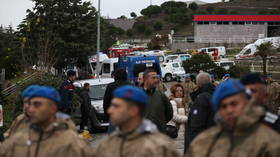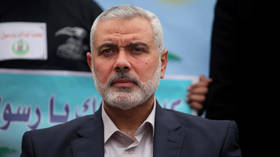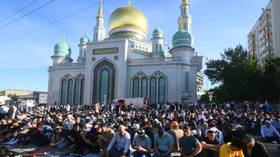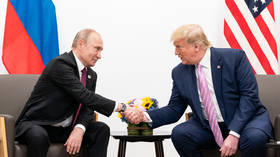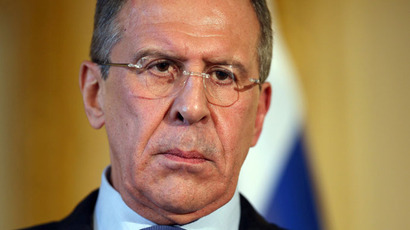Slap on wrist: US Navy officer gets 2 months suspended in abuse case of adopted Russian
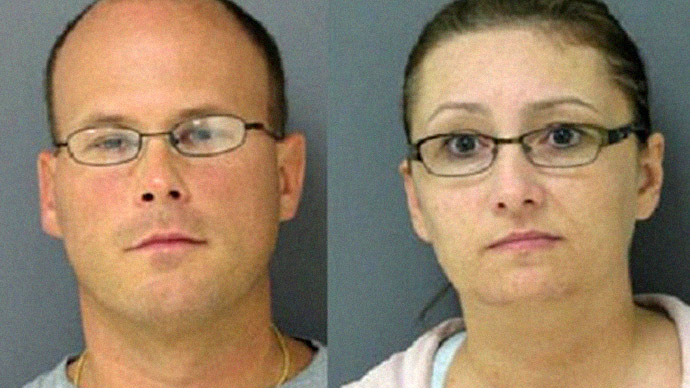
A US court has accepted a deal based on a guilty plea from Lt. Cmdr. Matthew Sweeney and his wife Amy Sweeney, who faced charges of abusing a young boy they had adopted from Russia.
A US court has accepted a deal based on a guilty plea from Lt. Cmdr. Matthew Sweeney and his wife Amy Sweeney, who faced charges of abusing a young boy they had adopted from Russia.
Matthew Sweeney pleaded guilty to charges of contributing to the delinquency of a minor and was given a suspended sentence of two months in prison, the RIA-Novosti news agency reported. The officer had seen bruises on the body of the nine-year-old, but took no action.
Amy Sweeney pleaded guilty to abuse and neglect of a child but her sentencing was postponed till September.
The charges concerned the couple’s adopted son Daniel Alexander Sweeney, whom they brought from Russia in 2006 as Daniil Kruchinin. In July 2012 the boy ran away from his adoptive parents and sought refuge at a neighbors’ home. When the neighbors and police examined the child they discovered he had bruises all over his body.
Soon after the incident came to light a local policeman said in televised comments that old and fresh bruises were discovered on the boy’s back, stomach, arms and legs. It was clear that someone had tormented the child for a long time, the officer said.
The adoptive parents were immediately arrested, but were soon released on bail. They faced charges in January. In the course of investigation the couple and their five biological children admitted that both Sweeney parents had repeatedly slapped Daniil and beaten him with a belt and with an electric cord. According to investigators, the couple had never administered corporal punishment on their other children.
The Daniil Kruchinin case is one of the more recent of a number of cases in which US adoptive parents are accused of cruel treatment and sometimes even manslaughter of their adopted Russian kids.
Russian politicians and diplomats have repeatedly complained that they could not get access to those kids (who, according to Russian law and an agreement with the US, remain Russian citizens until they are legally adult and can make a choice themselves). To this, the US side noted differences between state and federal laws that allowed local police to prevent foreign representatives from participating in probes and trials.
The situation eventually led to Russia passing the Dima Yakovlev Law – a broad act targeting US officials suspected of human rights violations but also banning all adoptions of Russian kids by US citizens and by proxy of US organizations.
The law was introduced since January this year, but as Russia and the United States have a bilateral agreement on adoptions that can be only canceled with one-year’s notice from one side to the other, Russian officials said that US citizens who had already launched the adoptions procedure would be allowed to complete it.
Otherwise, the ban will remain in force and no alterations will be made to it, Russian officials said.




